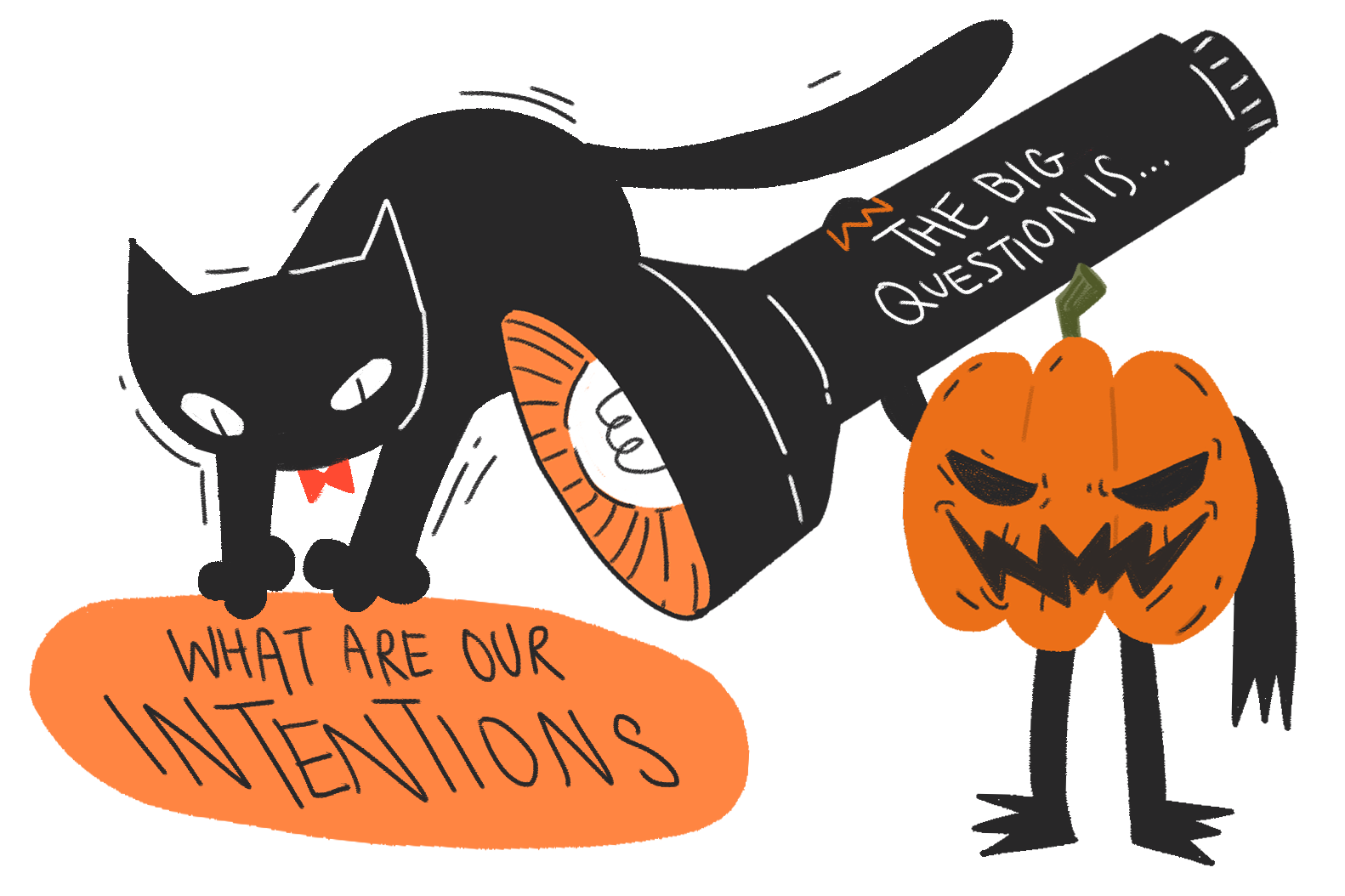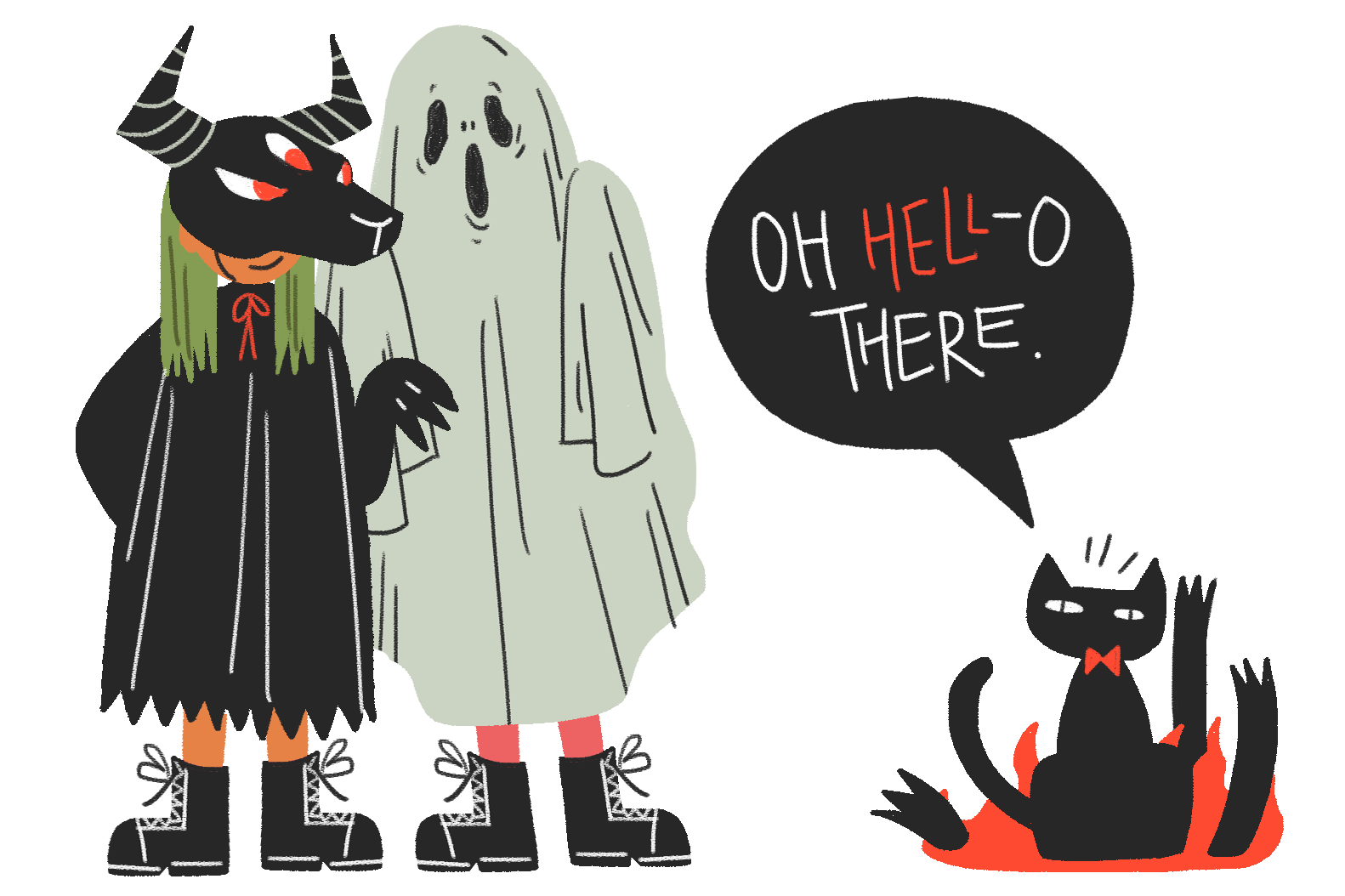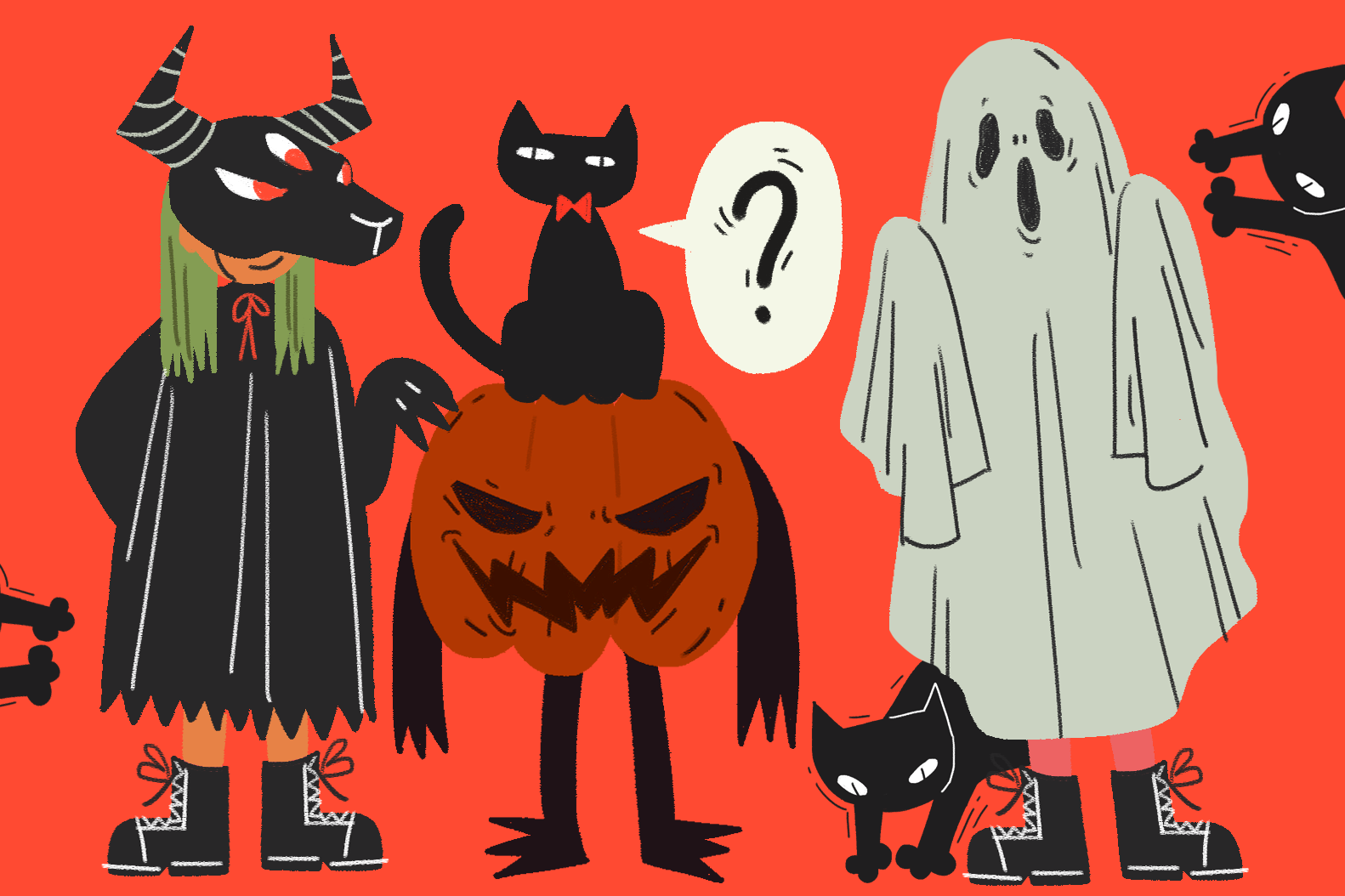Personally, I don’t celebrate Halloween. I’ve also never been to a Halloween Horror Nights at Universal Studios Singapore.
That’s not because I am a very “pious” Christian (Halloween is a topic annually debated among some Christians) but simply because I do not see the point of paying so much money to scare myself.
Plus, grotesque stuff has just never held any appeal for me.
That said, I’ve been thinking about whether it’s okay for me, as a Christian, to celebrate Halloween.

Where does Halloween cross over from being something that is just a fun celebration to connect with friends, to being something that doesn’t glorify God?
How do I draw the line between what is acceptable and what is not?
To do that, I believe it is important to know more about the history of Halloween and its traditions in order to discern for yourself where that line is.
The origin of the term “Halloween”
Did you know that “Halloween” is actually derived from “All Hallows’ Eve”, which is the eve of a Christian holiday?
This might be rather surprising given that Halloween and Christianity are stereotypically opposed to one another.
In the eight century, Pope Gregory III had the date of All Hallows’ Day (or “All Saints’ Day”, a day to remember those who had died for their beliefs) moved to November 1.
It is speculated that this was an effort to reform pagan traditions by assimilating or replacing it with one approved by the Catholic Church.
The day before All Hallows’ Day thus became known as All Hallows’ Eve, and was originally written as “Hallow E’en”, a contracted word meaning the eve of a holy day. The words were later combined to create the word “Halloween”.
Celtic origins (Samhain)
Despite the Christian roots of its name, Halloween still incorporates many pagan traditions of its Celtic history.
Historians have concluded that Halloween practices date back possibly over 2000 years ago to the ancient festival of Samhain.
This Celtic New Year Festival marked the end of the harvest season, the end of summer and the beginning of winter.
October 31st is thus believed by many to be the day when the veil between the world of the living and the dead is thinnest; a day full of supernatural activity and when non-living entities can interact with the living.
Food sacrifices are offered to appease the spirits of the dead on this day, a belief still practised by several pagan groups today.
Harmless festivities?
While dressing up in fancy costumes and carrying glowing pumpkins might sound like rather light-hearted and harmless activities, some of these playful festivities mask a darker history behind them.
Indeed, many of these festivities are closely associated with Celtic superstition and spirits of the dead.
For instance, the Halloween tradition of dressing up in costumes stems from the ancient practice of the Celts dressing up as evil spirits during Samhain, so that wandering spirits would mistake them for one of their own and not harass them.

In medieval times, people dressed in outfits representing dead souls and went about “souling”.
Souling was the practice of going to different houses to collect treats or “soul cakes” while praying on behalf of the dead. This tradition later evolved into the modern day trick-or-treating where people hand out candies.
And as for the iconic Jack-o’-lantern, it possibly originates from the Irish folk tale of Stingy Jack.
The story goes that Jack fooled the Devil into banning him from hell. However, since he was unable to enter heaven after death due to his sinful life, his spirit roamed the earth while carrying a small turnip lantern lit by an ember of flame from hell.
People later substituted the turnip with pumpkins since they were much easier to carve. Now, these carved pumpkin decorations never fail to make an appearance every Halloween.
Evangelism opportunities?
While most Christians would caution against Halloween, there are some Christians who believe that it can also open doors for evangelism.
In America, where Halloween is widely celebrated, some Christians believe that Halloween is a great opportunity to evangelise and share the Good News to strangers who show up at their doorsteps during trick-or-treating.
There have also been attempts to redeem and “Christianise” this pagan holiday, such as the alternative “holiday” JesusWeen.
As things like JesusWeen and handing out gospel tracts along with candies aren’t common in Singapore’s context; I suspect that evangelism efforts here during Halloween might look different.
Personally, it would probably be something like participating in Halloween-related events (that aren’t demonic, spiritual or occultic) solely for the express purpose of having conversations with non-believing friends about the supernatural.
It’s important to check the motivations of our hearts and question ourselves honestly.
There is a chance in these events for conversation starters to share about Jesus with non-believers, and it is also arguable that our non-believing friends might be more open and receptive to what we have to say if we don’t appear holier-than-thou.
But we need wisdom to draw that line and walk it well, and we need to listen to what God is telling us.
Are Christians then allowed to celebrate Halloween?
So, if some of these modern Halloween traditions are divorced enough from their dark origins, or if they can be used to further the Gospel, can Christians then take part in them?
After all, some believe it is okay to participate in certain “safe” elements of Halloween like candies and innocent costumes, so long as one isn’t dabbling in anything demonic or spiritual.
Others still, are convinced that they should have nothing to do with the darkness. Both parties might well be right.
““I have the right to do anything,” you say—but not everything is beneficial. “I have the right to do anything”—but not everything is constructive.” (1 Corinthians 10:23)
Ultimately, I don’t think it boils down to whether we can but whether we should celebrate Halloween.
If you are celebrating Halloween this year, I encourage you to pray for wisdom and discernment. One question to ask yourself is: why do you celebrate Halloween?
It’s important to check the motivations of our hearts and question ourselves honestly. Do we want to glorify God through it? How will our choice honour God?
Whatever our choice is, as Paul writes in 1 Corinthians 10:31, may all we do be done unto the glory of God.
- Do you personally celebrate Halloween?
- What are your reasons for doing so?
- Where would you draw the line to honour God with your decisions regarding Halloween?









